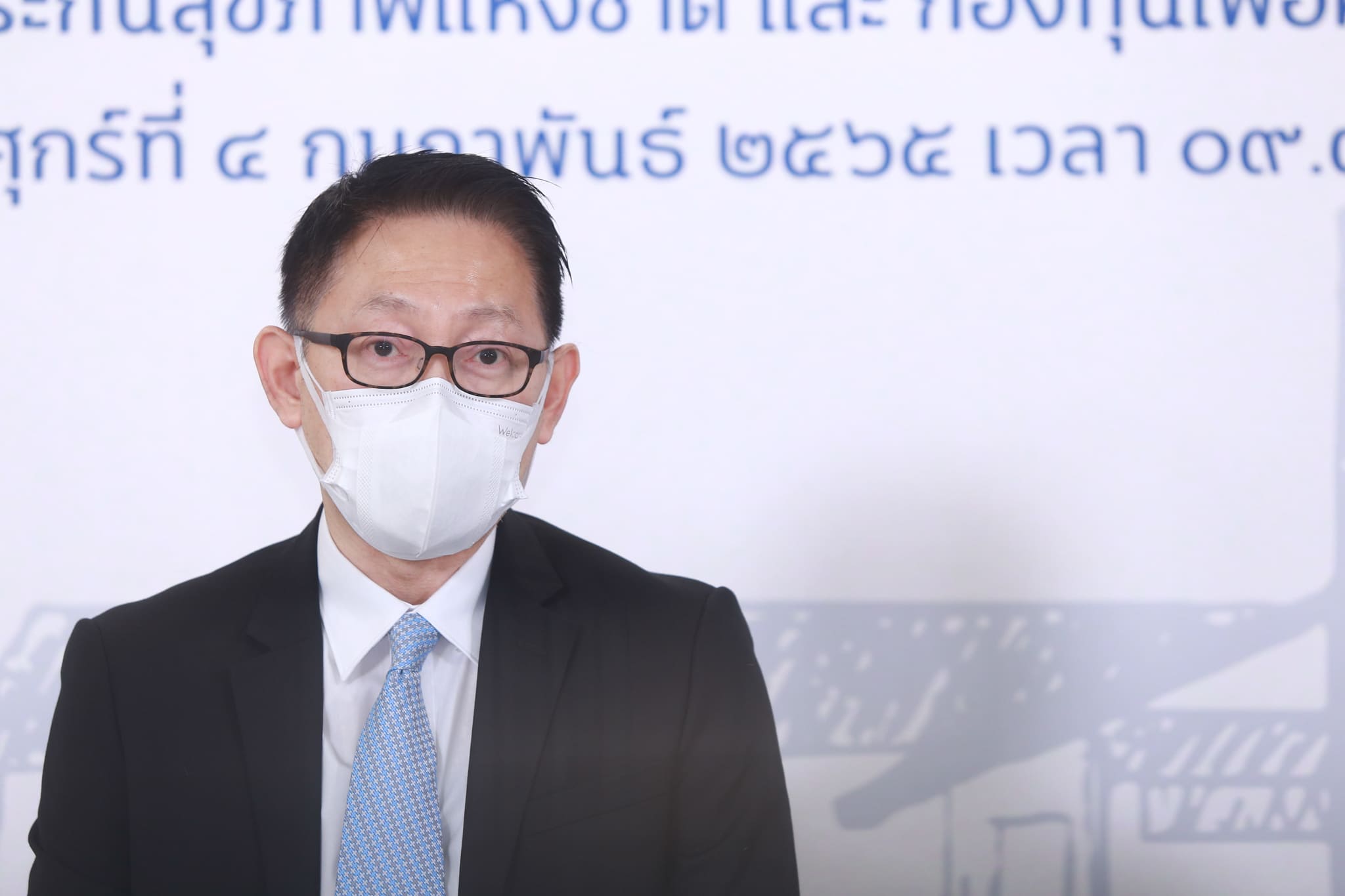
- Home
- DescriptionNews
Cancer screening tests provided to Thais
.jpg)
Cancer screening tests provided to Thais
Cancer is a major burden of disease around the world. According to the World Health Organization, it is the second leading cause of death globally, accounting for an estimated 9.6 million deaths in 2018.
To combat cancer, the Union for International Cancer Control (UICC) and the World Health Organization have marked "World Cancer Day" on 4 Feb to raise awareness of the disease and to encourage its prevention, detection, and treatment.
In Thailand, the government has put efforts and resources into tackling and preventing cancer.
The National Cancer Institute of Thailand reported that more than 139,000 new cancer cases were detected each year from 2016 to 2018, or 381 cases per day.
More than 84,000 people die from cancer each year.
The five most common cancer among Thais are liver cancer and cholangiocarcinoma, breast cancer, lung cancer, colorectal cancer, and cervical cancer.
"Some types of cancer can be cured if they are early detected, prompting the Thai government to introduce cancer screening tests in its three healthcare schemes Universal Coverage Scheme (UCS), Social Security Scheme, and Civil Servant Medical Benefits," said Dr Jadej Thammatacharee, secretary-general of National Health Security Office (NHSO) managing the UCS fund.

"Once the tests show the risk of cancer, individuals will receive diagnostic tests and treatment if the tests confirm them having the disease."
In 2022, in collaboration with the NHSO, the government will focus on a case-finding strategy that targets providing screening tests for population groups at risk for cancer.
Here are the three types of cancers highlighted in the government's healthcare schemes.
Cervical cancer
Cervical cancer is the second most common cancer among women in Thailand after breast cancer. It can often be found early and even prevented by regular screening tests.
To encourage Thai women to have regular tests, the NHSO has pushed to include three types of cervical cancer screening tests in the government's healthcare schemes.
These include pap smear (by collecting cells from cervix), visual inspection with acetic acid (by inserting speculum in cervix and physicians having naked-eye examination), and HPV DNA Test (by collecting cells and examining in laboratories for the genetic material of HPV.)
These tests are recommended by the Royal Thai College of Obstetricians and Gynecologists. Every woman should get a test once every five years.
The NHSO will provide tests to three million women in 2022, or around 20% of the female population in Thailand.
In 2017, the NHSO started introducing the HPV vaccine in the government's healthcare benefits, in which girls are eligible to get free vaccines when they reach grade five.
Colorectal cancer
Colorectal cancer is the fourth most common cancer among Thais.
Since 2018, fecal immunochemical test (FIT) has been included in the government's healthcare benefits. It tests for hidden blood in the stool, which shows an early sign of cancer.
Thais aged between 50 and 70 are eligible for getting free tests once every two years. If their test results are positive, doctors will provide them with a diagnostic colonoscopy.
The NHSO has set a target to provide FIT to 1.7 million people in 2022, or around 10% of the target groups.
Oral cancer
Oral cancer screening test is a new medical benefit introduced in the government's three healthcare schemes this year.
Thais over 40 years old can request one test every year, which is recommended by the Public Health Ministry's Department of Health, Royal College of Dental Surgeons, and the Royal College of Otolaryngologists-Head and Neck Surgeons of Thailand.
Around 2.2 million people, or 30% of the target population, will receive the tests throughout this year, costing approximately 29 million baht.
The NHSO considers this an investment in people's health because oral cancer can be cured if detected at an early stage. Those who are treated can continue everyday lives and make a return to the Thai economy.
/////////////////////

